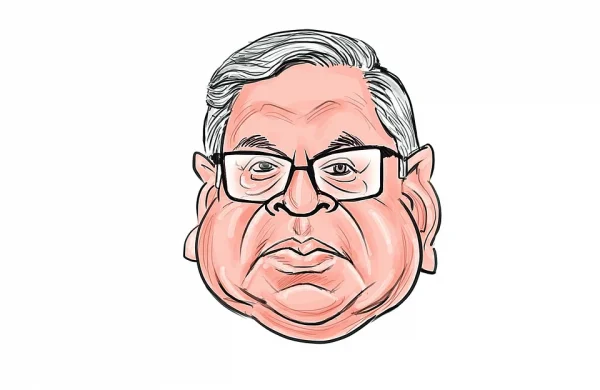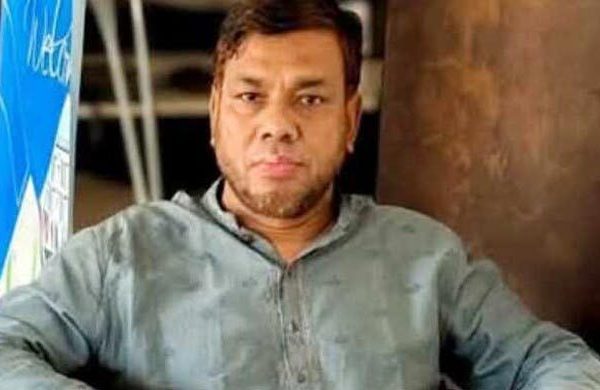AL rule: Nasrul Hamid behind LNG business syndicate
- Update Time : Friday, November 8, 2024

TDS Desk:
Four particular companies secured the bulk of contracts to import liquefied natural gas (LNG) from the spot market during the fallen Awami League government. Surprisingly, two of them were awarded contracts even after the departure of the previous government.
Insiders alleged that the former state minister for power, energy, and mineral resources, Nasrul Hamid, was the kingpin behind the LNG trading syndicate.
According to the energy and mineral resources division, the government spent a total of Tk 1.66 trillion on LNG imports (under both G2G agreements and spot market) over the past six fiscal years, with a staggering amount of Tk 426.43 billion spent in the last fiscal year alone.
For the first time, Bangladesh started LNG imports in the 2018–19 fiscal year through long-term government to government (G2G) contracts. Later, it began LNG procurement from the spot market through private entities in 2020.
Since then, four companies – Vitol Asia (Singapore), Gunvor (Singapore), TotalEnergies (Switzerland), and Excelerate Energy (United States) – have secured the majority of contracts.
According to Petrobangla sources, Vitol Asia and Gunvor, in particular, supplied over 60 per cent of LNG to Bangladesh. Multiple sources said members of Nasrul Hamid’s family and close associates have business ties to these companies.
Vitol Asia did not receive any fresh contracts under the interim government, but TotalEnergies and Gunvor were awarded two new contracts each in October, for supplying four LNG cargoes in total.
CONTROVERSIAL COMPANIES
There have been significant controversies over the business of Vitol Asia, Gunvor, and Total. They began their operation here following the commencement of LNG imports. TotalEnergies has an office in Dhaka, while Vito and Gunvor operate through a local representative – Ejazur Rahman. It was learned that Ejazur also serves the OQ Trading as its local representative.
Bangladesh imports LNG from OQ Trading and QatarEnergy under two long-term agreements. Ejazur, as representatives of Vitol Asia, has long been supplying LNG to Bangladesh.
Insiders alleged that Nasrul Hamid engaged in LNG business during the Awami League government. Since 2014, he has been the state minister for the power, energy and mineral resources ministry in three terms.
Gunvor, Vitol and Total operate their business in different countries, while Bangladesh imports LNG from the Singapore-based units of Gunvor and Vitol. They were punished at different times in the US, for breaching the US foreign corrupt practices act.
Besides, Vitol was slapped with a large sum of fine in the US in 2020, for bribing government officials in Brazil, Ecuador, and Mexico to secure contracts. Gunvor was fined $660 million by the US in March this year, for securing contracts from Ecuador with bribes. For the same offense, Vitol was fined $130 million by the US in 2013.
Petrobangla has authorised the Rupantarita Prakritik Gas Company Limited (RPGCL) to carry out LNG imports in Bangladesh. According to responsible sources within the two entities, the commercial office of Ejazur is located in a building on the opposite of the Petrobangla headquarters in Dhaka.
He could not be reached for comment over the allegations, despite repeated calls and messages. A source claimed that he has now been in hiding.
There are 23 listed companies in Bangladesh to import LNG from the spot market. According to insiders, the list was engineered to prevent some companies from bidding during tenders. A few of them used to participate in bidding, but withdrew eventually.
There is a perception among different companies that they will not be given contracts eventually, as those, associated with Nasrul Hamid’s allies, are chosen. Their perception aligns with data of previous tenders.
According to the energy division sources, a total of 74 LNG cargoes have been procured from the spot market as of 20 October, with Vitol alone supplying 30, Gunvor 15, Total 14, and Excelerate Energy 10 cargoes.
Among others, AOT Trading participated in 17 tenders, but received only three contracts. Besides, JERA of Japan, and Qatar Energy supplied two cargoes.
It was learned that a company called PowerCo International was established in Dhaka in 2019 According to its website, the company supplies LPG and LNG and is associated with power sector businesses. Apart from Dhaka, PowerCo maintains a commercial office in Singapore and partnership with Vitol Asia.
Sources from the office of the registrar of joint stock companies and farms said Powerco was registered jointly by Md Kamruzzaman Chowdhury and Indian citizen Nabil Khan. Kamruzzaman is the maternal uncle of Nasrul Hamid. In December 2020, Kamruzzaman was removed and Md Murad Hasan was brought as a partner of the company. At the same time Murad was given the responsibility of managing director in place of Kamruzzaman.
Sources said that Kamruzzaman was removed from the company to avert any controversy due to his relationship with Nasrul Hamid. Nabil Khan is a friend of Nasrul Hamid. Nabil’s Dubai address was given in the registration. Murad Hasan is the CEO of Hamid Group, the family business of Nasrul Hamid. Before taking charge as the state minister, Nasrul Hamid used to look after Hamid Group’s businesses. He then made his younger brother Intekhabul Hamid the MD of the group. There are allegations of Intekhabul’s link with Ejazur in the LNG business.
A source said Kamruzzaman, Nabil Khan, Murad Hasan and Intekhabul all went into hiding. They could not be contacted for comments about the allegations.
Vitol Asia, Marubeni Corporation and Bangladeshi company PowerCo formed a consortium to get the work of an LPG terminal in Bangladesh. Bangladesh Petroleum Corporation (BPC) in March 2021 signed a MoU with the consortium on construction of the LPG terminal. BPC recruited the consultant for the terminal project in the 2022-23 fiscal year. The feasibility study was supposed to be conducted this year. Now the work is stalled.
Nasrul Hamid could not be reached for comment on the issue. It has been learnt that Nasrul Hamid went into hiding since the fall of Awami League government on 5 August.
The previous government had enacted the Speedy Power and Energy Supply (Special) Act 2010 to work without tendering. This is known as the impunity act because of a provision that no decision of this act can be challenged in court
ENLISTED, BUT NOT IN BIDDING
Eight international companies were enlisted on 18 December in 2019 to purchase LNG from the spot market. Of the companies, only Japanese company JERA once took part in the bidding process and supplied one cargo LNG. Italy’s Eni SpA and UK’s Cheniere Marketing took part in one and four biddings respectively but did not get any work.
On 3 February 2020, six more companies including Singapore-based Vitol Asia and UK’s Accelerate Energy were enlisted. Singapore Gunvor and Switzerland’s Total Energies Gas were enlisted on 18 September in 2021. Seven more companies were added to the list in 2023. In the latest, Oman’s OQ Trading Limited was enlisted on 7 March this year. The company took part in three biddings but could not get any work.
Bangladesh has been suffering from a consistent gas crisis for several years. The demand of gas per day is 3.8 billion cubic feet while the average daily supply is between 2.9 and 3 million cubic feet. Of this, LNG supply capacity is 1.1 billion cubic feet per day. A little over 900 million cubic feet is being supplied now.
Geologist Badrul Imam told that there is scope to get a commission in case of import. This is why import has been increased without exploration of domestic gas. Even in the case of imports, national interest was not considered. Some companies were provided special privileges on personal interest. If domestic gas exploration and production is done properly, there will be no need to import gas.
OLD LIST APPROVED ANEW
Officials of Petrobangla and RPGCL said that there is no scope for open tendering to buy LNG. Therefore, bids have to be taken from those with whom there is an agreement. The interim government is working on the old list despite suspending the impunity law in the energy sector.
The previous government had enacted the Speedy Power and Energy Supply (Special) Act 2010 to work without tendering. This is known as the impunity act because of a provision that no decision of this act can be challenged in court. Despite much flak, the previous government extended the term of act several times.
Purchase and sales agreement (Master Sales and Purchase Agreement) with 23 international companies to buy LNG from the spot market was also signed under the special provision act. Those who want to buy LNG from these companies offer bids. The buy order is given to the lowest bidder.
The interim government announced the suspension of the special provision act on 18 August. The government announced that the processing of purchases under this law will be suspended for the time being. However, the activities already undertaken under the agreement will continue. After that, the list of 23 old companies to buy LNG from the spot market was newly approved by the advisory council committee on economic affairs on 4 September.
Power, energy and mineral resources adviser Mohammad Fouzul Kabir Khan told it is known that some companies have a monopoly in LNG import. Steps are being taken in this end. A new list will be prepared by floating tender. However, the old list prepared by the previous government has been approved for the time being to prevent the gas crisis.
The experts since the beginning have been criticizing the decision to import LNG. They maintain that the previous government did not focus on gas exploration despite possibilities. All agreements with LNG import terminals and importers were done under the special act.
Transparency International Bangladesh’s executive director and anti-corruption system reform commission’s chief Dr Iftekharuzzman told that Awami League government stopped the option of open tendering system by making the indemnity act at the very beginning.
Although 23 companies were shortlisted to buy LNG, only a few companies got the work in turns while the rest did not even participate in the tender. That means a syndicate was in operation here. Although the top level of the government has changed, the structure has not changed. So the old beneficiaries are still taking advantage. He said that the government should take immediate steps.















